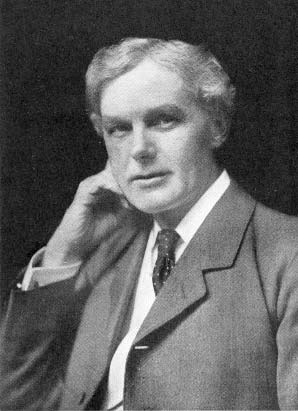John Henry Clarke
British homeopath and author

John Henry Clarke (1853–1931) was a prominent British homeopath, known for his extensive writings and contributions to the field of homeopathy. Clarke was a vocal advocate for homeopathic medicine and authored several influential texts that continue to be referenced by practitioners today.
Early Life and Education[edit]
John Henry Clarke was born in 1853 in England. He pursued his medical education at the University of Edinburgh, where he developed an interest in homeopathy. Clarke's early exposure to homeopathic principles shaped his future career and led him to become one of the most notable figures in the field.
Career[edit]
Clarke began his medical practice in London, where he quickly gained a reputation for his skill in homeopathic treatments. He was a prolific writer, contributing numerous articles and books on homeopathy. His works often focused on the practical application of homeopathic remedies and the philosophy underlying homeopathic medicine.
Notable Works[edit]
Clarke's most famous work is the "Dictionary of Practical Materia Medica", a comprehensive reference that details the properties and uses of various homeopathic remedies. This text remains a cornerstone in homeopathic literature and is widely used by practitioners around the world.
Another significant contribution by Clarke is "A Clinical Repertory to the Dictionary of Materia Medica", which serves as a guide for homeopaths in selecting appropriate remedies based on clinical symptoms.
Philosophy and Influence[edit]
Clarke was a staunch defender of homeopathy, often engaging in debates with critics of the practice. He believed in the holistic approach of homeopathy, emphasizing the treatment of the individual as a whole rather than focusing solely on symptoms. Clarke's writings reflect his commitment to this philosophy and his desire to educate both practitioners and the public about the benefits of homeopathic medicine.
Legacy[edit]
John Henry Clarke's contributions to homeopathy have left a lasting impact on the field. His writings continue to be studied by homeopaths and his influence is evident in the continued practice of homeopathy in various parts of the world. Clarke's dedication to the advancement of homeopathic medicine has ensured his place as a key figure in its history.
Related pages[edit]
Ad. Transform your life with W8MD's Budget GLP-1 injections from $75


W8MD offers a medical weight loss program to lose weight in Philadelphia. Our physician-supervised medical weight loss provides:
- Weight loss injections in NYC (generic and brand names):
- Zepbound / Mounjaro, Wegovy / Ozempic, Saxenda
- Most insurances accepted or discounted self-pay rates. We will obtain insurance prior authorizations if needed.
- Generic GLP1 weight loss injections from $75 for the starting dose.
- Also offer prescription weight loss medications including Phentermine, Qsymia, Diethylpropion, Contrave etc.
NYC weight loss doctor appointmentsNYC weight loss doctor appointments
Start your NYC weight loss journey today at our NYC medical weight loss and Philadelphia medical weight loss clinics.
- Call 718-946-5500 to lose weight in NYC or for medical weight loss in Philadelphia 215-676-2334.
- Tags:NYC medical weight loss, Philadelphia lose weight Zepbound NYC, Budget GLP1 weight loss injections, Wegovy Philadelphia, Wegovy NYC, Philadelphia medical weight loss, Brookly weight loss and Wegovy NYC
|
WikiMD's Wellness Encyclopedia |
| Let Food Be Thy Medicine Medicine Thy Food - Hippocrates |
Medical Disclaimer: WikiMD is not a substitute for professional medical advice. The information on WikiMD is provided as an information resource only, may be incorrect, outdated or misleading, and is not to be used or relied on for any diagnostic or treatment purposes. Please consult your health care provider before making any healthcare decisions or for guidance about a specific medical condition. WikiMD expressly disclaims responsibility, and shall have no liability, for any damages, loss, injury, or liability whatsoever suffered as a result of your reliance on the information contained in this site. By visiting this site you agree to the foregoing terms and conditions, which may from time to time be changed or supplemented by WikiMD. If you do not agree to the foregoing terms and conditions, you should not enter or use this site. See full disclaimer.
Credits:Most images are courtesy of Wikimedia commons, and templates, categories Wikipedia, licensed under CC BY SA or similar.
Translate this page: - East Asian
中文,
日本,
한국어,
South Asian
हिन्दी,
தமிழ்,
తెలుగు,
Urdu,
ಕನ್ನಡ,
Southeast Asian
Indonesian,
Vietnamese,
Thai,
မြန်မာဘာသာ,
বাংলা
European
español,
Deutsch,
français,
Greek,
português do Brasil,
polski,
română,
русский,
Nederlands,
norsk,
svenska,
suomi,
Italian
Middle Eastern & African
عربى,
Turkish,
Persian,
Hebrew,
Afrikaans,
isiZulu,
Kiswahili,
Other
Bulgarian,
Hungarian,
Czech,
Swedish,
മലയാളം,
मराठी,
ਪੰਜਾਬੀ,
ગુજરાતી,
Portuguese,
Ukrainian